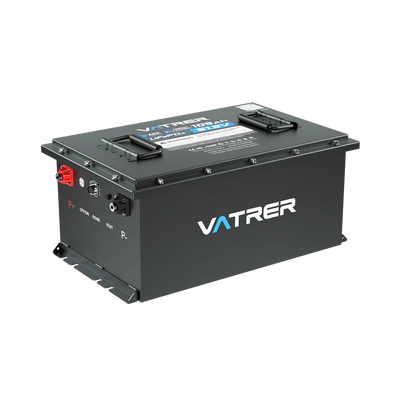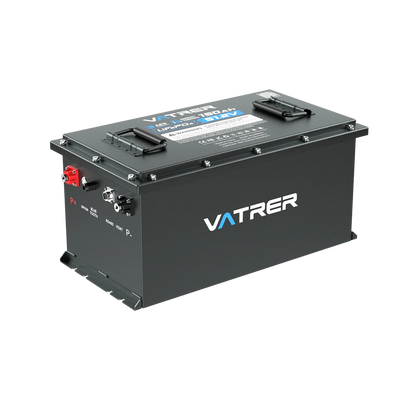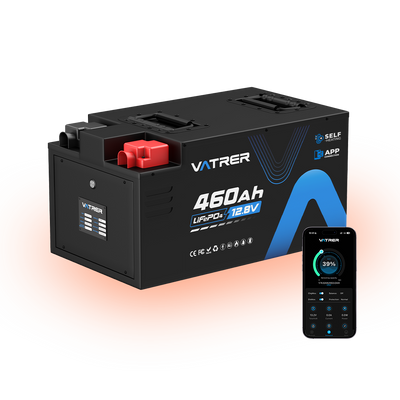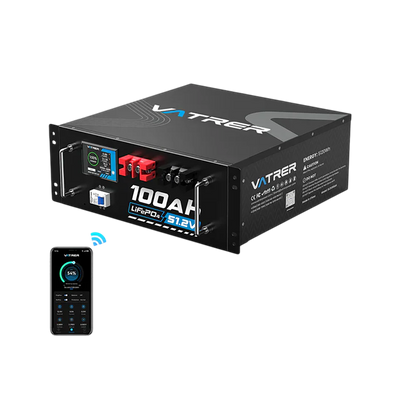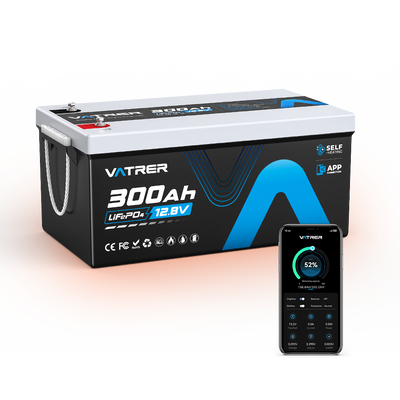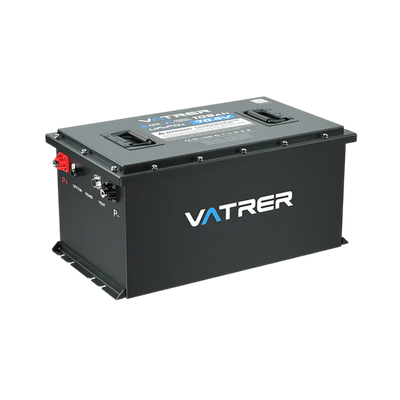Switching to solar energy is one of the most practical ways to reduce electricity bills and gain long-term energy independence. As solar technology continues to advance, homeowners across the U.S. are increasingly considering residential solar systems. However, understanding the real solar energy system cost can be confusing due to varying equipment options, installation factors, and regional differences.
This comprehensive guide explains everything you need to know, from upfront costs and system size considerations to long-term savings and available solar incentives, so you can make an informed solar investment.
Average Solar System Cost and System Size in 2025
Before factoring in tax credits or rebates, the average cost of solar panels and installation in 2025 typically ranges between $2.50 and $3.50 per watt (W). Total project costs depend on your home's energy usage, location, and roof setup.
System Size (kW)
Home Size (sq ft)
Estimated Pre-Tax Cost
Notes
4 kW
up to 1,500 sq ft
$12,000 – $16,000
Covers partial energy needs
6 kW
1,500 – 2,000 sq ft
$18,000 – $22,000
Typical U.S. household system
8 kW
2,000 – 2,500 sq ft
$24,000 – $28,000
Includes higher daily usage
10 kW
2,500+ sq ft
$30,000 – $35,000
Suitable for high-energy demand homes
The average residential solar system in the U.S. today is around 6-8 kW, which translates to a total cost of about $25,000-$45,000 before incentives.
Tip: If you're wondering how much a solar system for a 2000 sq ft house costs, expect a 6-8 kW system that can cover most or all of your power needs, depending on where you live and how much energy your household consumes.
Solar Energy Battery Costs and Home Storage Options
Adding a solar energy battery allows you to store power for nighttime use or during grid outages. While it increases your upfront costs, it also enhances energy independence and system reliability.
Lithium solar batteries, especially LiFePO4 types, are becoming the preferred choice for their high efficiency, long lifespan, and low maintenance.
Storage Type
Capacity (kWh)
Estimated Cost (Installed)
Use Case
Single Battery Unit
5–10 kWh
$3,000 – $8,000
Partial backup or small homes
Whole-Home Backup
12–20+ kWh
$12,000 – $20,000+
Full-house coverage
Scalable Multi-Battery System
20–50 kWh
$20,000 – $40,000+
Off-grid or heavy use
Such as Vatrer Battery offers smart lithium solar batteries equipped with Bluetooth monitoring and built-in BMS protection for temperature, voltage, overcharge control and up to 30 units parallel, making them best for modern solar systems.
Post-Incentive Solar Panel System Cost After Tax Credits
The 30% Federal Investment Tax Credit (ITC) dramatically reduces the cost of installing solar panels and batteries. Here's how the numbers work out in 2025:
System Size (kW)
Pre-Tax Cost
After 30% ITC
Typical Use Case
4 kW
$12,000 – $16,000
$8,400 – $11,200
Small homes
6 kW
$18,000 – $22,000
$12,600 – $15,400
Average homes
8 kW
$24,000 – $28,000
$16,800 – $19,600
Large homes
10 kW
$30,000 – $35,000
$21,000 – $24,500
High-demand homes
After applying federal and possible state or local incentives, the real solar panel system cost could range from $10,000-$30,000, depending on where you live and your available rebates.
Solar System Cost Breakdown: Where Your Money Goes
Understanding how your money is distributed across your system helps you evaluate quotes more effectively.
Component
Function
Share of Total Cost
Typical Range
Solar Panels
Generate electricity
12–15%
$2–$3/W
Inverter
Converts DC to AC
5–10%
$1,000–$2,500
Mounting System
Secures panels to roof/ground
3–5%
$500–$2,000
Battery Storage
Stores energy for later use
20–40%
$3,000–$20,000+
Labor & Installation
Roof prep, wiring, inspection
20–25%
$3,000–$10,000
Permits & Admin
Permits, insurance, interconnection
10–15%
$1,000–$3,000
Tip: A professional installer may cost more initially but can save time and reduce approval delays, which often lower total project costs in the long run.
Key Factors That Influence Solar Energy System Cost
Understanding the main cost drivers helps you evaluate quotes and optimize your solar investment. Several key factors determine your final solar system cost:
System Size (kW): Larger systems cost more upfront but deliver lower cost per watt and higher long-term savings. A typical 6-8 kW system fits most homes, while smaller houses can meet needs with 4-5 kW setups.
Location and Sunlight Exposure: Your region's sunlight hours and local labor rates greatly affect solar system cost. Homes in sunny areas generate more energy per panel (California, Arizona, Florida), while dense urban regions often have higher permitting and labor expenses.
Roof Type and Installation Complexity: Steep or shaded roofs require additional mounting materials and labor time, increasing installation cost. South-facing roofs with clear exposure reduce hardware needs and boost energy production.
Equipment Quality and Technology: High-efficiency monocrystalline panels and advanced lithium solar batteries cost more but convert sunlight more effectively and last longer. Premium components also lower long-term maintenance and improve reliability.
Labor Rates and Permitting Fees: Installation labor and permitting typically account for 20-30% of total costs. Areas with higher wages or stricter codes may increase pricing, but professional installation ensures safety and compliance.
Incentives, Rebates, and Financing: Federal and state solar incentives, like the 30% tax credit, can cut costs dramatically. Pairing these with solar loans or leases allows homeowners to go solar with little or no upfront payment.
Tip: Combining efficient system sizing, quality devices, and available incentives can reduce your payback period by several years while ensuring long-term performance.
Installing a Solar Panel System: DIY vs Professional Installation
While installing solar panels yourself might seem like a money-saving idea, it involves significant technical, safety, and legal considerations.
DIY Installation: DIY setups can reduce overall costs by $2,000-$5,000, but they demand strong electrical knowledge and compliance with building codes. You'll also need to handle permits, inspections, and potential connection approvals from your local utility. Improper installation can lead to lower system efficiency, fire hazards, or voided warranties.
Professional Installation: Professional solar companies provide full-service installation, including design optimization, wiring, permitting, and grid connection. Although the upfront solar system cost is higher, certified installers ensure maximum performance, warranty protection, and code compliance. Most professionals also offer post-installation monitoring and maintenance, giving you peace of mind and long-term reliability.
Tip: Unless you're a licensed electrician or solar technician, opt for professional installation. The added security, warranty coverage, and system optimization often outweigh the small DIY savings.
Long-Term Solar Investment ROI and Payback Period
When evaluating solar system cost, it's crucial to understand how long it takes for the system to pay for itself through energy savings. On average, a residential solar system pays off in 6-10 years, depending on system size, electricity rates, and your region's sunlight conditions.
For example, a $30,000 solar panel system can save about $3,000 annually on utility bills, achieving a 10-year payback. After that, homeowners enjoy free renewable energy for the remaining lifespan, often 25 years or more.
Adding lithium solar batteries increases the upfront cost but also boosts energy independence and potential savings by storing excess power for nighttime use or during peak electricity rate hours. In some states, stored energy can even be sold back to the grid through net metering programs.
Tip: Track your system's energy output monthly. If actual performance matches the installer's estimates, your return on investment will remain on track for the projected payback period.
Maintaining Your Solar Panel System and Energy Batteries
Regular maintenance ensures consistent energy production and system longevity:
Clean panels every 3-6 months.
Monitor shading and inverter performance.
Use app-based systems like Vatrer's smart BMS for real-time battery monitoring.
Check your warranty terms—25 years for panels, 10-15 for inverters, and 5-10 for batteries.
Tip: Opt for transferable warranties to increase your home's resale value and reassure future buyers.
Final Thoughts: Maximizing Your Solar Investment
Installing a solar panel system is a long-term investment that pays off through lower electricity bills, tax credits, and a cleaner environmental footprint. While upfront costs may seem high, federal and state solar incentives significantly reduce the burden, and high-efficiency lithium solar batteries extend your system's capability and independence.
With trusted partners like Vatrer Battery, homeowners can integrate advanced solar energy batteries for smarter monitoring, higher safety, and longer service life, ensuring stable energy for the next 25 years and beyond.
Power your home efficiently with Vatrer LiFePO4 solar batteries, engineered for long life, smart energy management, and complete independence.
Final Tips: The real solar system cost depends on your system size, location, and energy goals. Take the time to compare quotes, check incentive eligibility, and explore reliable solar companies that can customize your residential solar system for maximum value and performance.
FAQs
What Is The Average Cost Of a Whole Home Solar System?
In 2025, the average cost of a whole home solar system ranges from $25,000 to $45,000 before incentives, depending on your system size, location, and equipment quality. After applying the 30% federal solar tax credit, most homeowners pay around $17,000 to $30,000. Larger systems that include battery storage, such as whole-home backup options, can reach $40,000 to $60,000 but offer complete energy independence and blackout protection.
Can Solar Panels Work On Cloudy Days?
Yes. Solar panels still produce energy on cloudy or overcast days, though their efficiency drops to about 10-25% of normal output. Modern monocrystalline panels and high-efficiency inverters help optimize performance even with reduced sunlight. To balance this variation, many homeowners pair their systems with lithium solar batteries that store excess power generated on sunny days for later use.
Do Solar Panels Work With Snow On Them?
Light snowfall typically melts quickly due to the dark, heat-absorbing surface of solar panels. However, heavy snow buildup can temporarily block sunlight, reducing power generation until the snow slides off or melts.
Panels are usually installed at an angle to help snow shed naturally. In cold climates, systems are designed and tested to handle snow loads safely without damaging the panels.
Tip: Avoid scraping snow manually with hard tools, as this can scratch the glass surface, use a soft brush or let nature take its course.
What Is The 33% Rule In Solar Panels?
The 33% rule is a general design guideline in solar planning. It suggests that if your home cannot accommodate a full-size solar array, due to limited roof space, shading, or budget, aiming for a system that covers at least one-third (33%) of your average electricity usage still delivers meaningful savings.
This rule is not a hard limit but a starting point for cost-effective solar adoption. Even a smaller system can reduce your electricity bills, stabilize your energy costs, and make it easier to expand later as needs grow. With today's more efficient solar panels and lithium solar batteries, many homeowners now size systems to offset 70-100% of their energy consumption instead of stopping at the 33% threshold.
Can You Legally Install Your Own Solar Panels?
Yes, it is legal to install solar panels yourself in most U.S. states, but strict rules apply. You must follow local building codes, obtain permits, and pass electrical inspections.
DIY installation can save money, but comes with risks: improper wiring, roof damage, or noncompliance may void warranties and prevent grid connection. Unless you have professional electrical experience, hiring a licensed solar company is the safer and more reliable choice.
Why Is My Electric Bill So High if I Have Solar Panels?
A high electric bill after installing solar panels can result from several factors:
Under-sized system: Your solar setup may not cover your full energy demand.
Higher usage: Energy consumption often increases after installation.
Limited sunlight: Shading, dirty panels, or seasonal changes reduce output.
Utility fees: Some utilities charge connection or service maintenance fees even for solar homes.
Regular system monitoring, energy audits, and solar energy battery integration can help improve efficiency and reduce your bill.
Tip: Check your inverter's app or monitoring dashboard monthly to ensure your system is performing at expected levels.
What Size Solar System Suits My Home's Energy Use?
The right solar system size depends on your monthly energy consumption, measured in kilowatt-hours (kWh), as well as your home's location and roof space.
A small home (under 1,500 sq ft) typically needs a 4-5 kW system to cover most daily use.
A medium home (1,500-2,000 sq ft) usually requires 6-8 kW, which offsets 80-100% of consumption.
A large home (2,500+ sq ft) may need 10-12 kW or more, especially if using EVs or electric heating.
Your installer will calculate the best system size based on your utility bills, sunlight exposure, and desired energy independence.
Tip: If your budget or roof space is limited, you can start smaller and expand later, especially if you use modular lithium solar batteries for scalable storage.
What Is The Cost Breakdown For Solar Plus Battery Versus Panels Only?
Adding battery storage significantly changes the overall solar energy system cost, but it also adds resilience and backup power.
System Type
Average Cost (Before Incentives)
Key Benefit
Panels Only
$20,000 – $35,000
Reduces utility bills and pays back faster
Panels + Battery (5–10 kWh)
$25,000 – $45,000
Stores power for night use and emergencies
Panels + Whole-Home Backup (12–20 kWh+)
$35,000 – $60,000+
Enables energy independence and off-grid capability
While panels-only systems deliver the fastest payback, adding lithium solar batteries enhances your return by storing excess solar energy for high-rate or outage periods, especially valuable in regions with frequent blackouts or time-of-use billing.
How Much Will Incentives And Tax Credits Reduce My Solar System Price?
The Federal Investment Tax Credit (ITC) offers a 30% deduction on your total solar installation cost, including both panels and battery storage. For example:
A $30,000 system drops to $21,000 after the ITC.
Some states offer additional rebates ($500-$1,000 per kW), property tax exemptions, or utility cash-back programs.
Together, these solar incentives can lower your solar system cost by 35-45%, depending on where you live.
Always verify eligibility through your state's renewable energy office or the DSIRE database, which tracks all available local and federal programs.
What Is The Average Payback Period And Savings Over 25 Years?
For most U.S. homeowners, the average payback period for a residential solar system is 6-10 years, depending on system size, energy rates, and sunlight exposure. After that, you enjoy decades of nearly free power
Over 25 years, the average homeowner saves between $15,000 and $35,000, sometimes more in areas with high electricity rates. Systems with battery storage can push lifetime savings even higher by reducing dependence on the grid during expensive peak hours.
Tip: Cleaning your panels regularly and monitoring output ensures your savings stay on track and your system performs optimally throughout its lifespan.
How Do Local Installation Quotes In My State Compare?
Solar installation costs vary widely by region due to differences in labor rates, permitting fees, and competition among local solar companies.
States like California, Arizona, and Texas often have lower installation prices due to mature solar markets and strong incentives.
States with fewer solar providers or higher labor costs, such as those in the Northeast, may have slightly higher quotes for similar systems.
To get an accurate comparison, request three or more quotes from certified installers in your area. Be sure to compare not only price per watt but also equipment quality, warranty terms, and customer service reputation.
Tip: Many installers offer free home assessments and price-matching guarantees, helping you secure the best deal for your residential solar system without compromising on quality.













































































